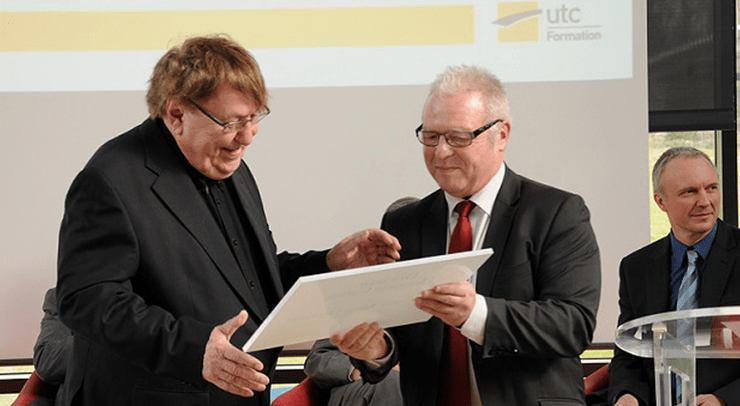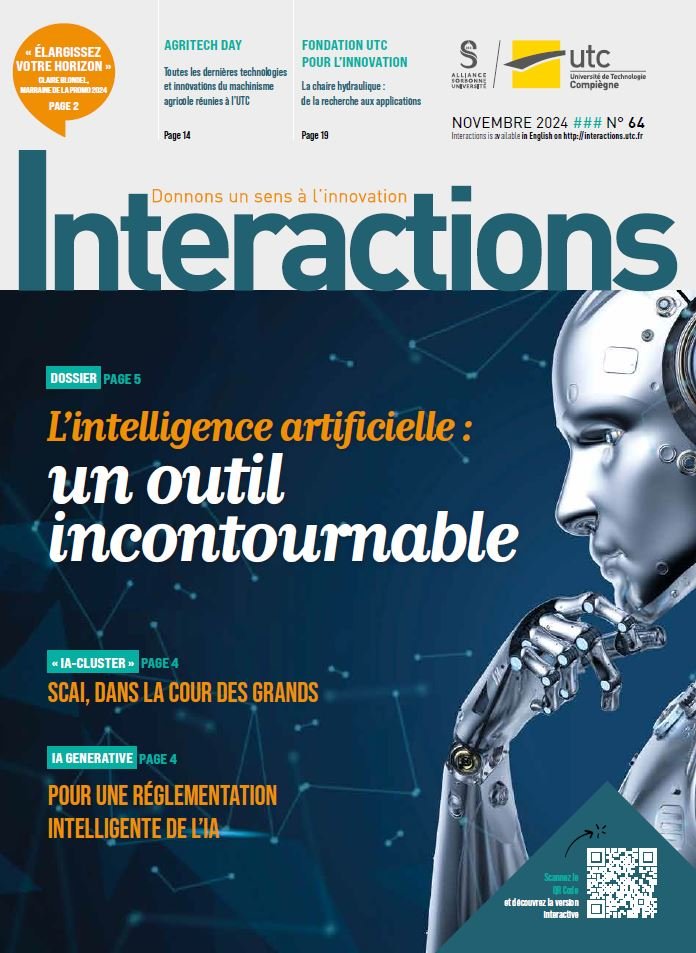Doctor honoris causa : UTC Prof. Klaus Mosbach, the ’playboy’ scientist

Prof. Klaus MOSBACH is a “playboy” and his advice is that we should all copy him! With this touch of humour that belies a great intelligence, our playboy professor, in April, received the distinction of a doctorate honoris causa of UTC Compiegne. His exchange with Interactions goes back over his career and underlines the prime need to keep an open mind.
In the beginning was the Music. Klaus MOSBACH plays the piano, has a perfect pitch ear and loves – with the keyboard — to imitate bird-songs, those he used to hear when walking the streets when he was young. Klaus was born in 1932 in Leipzig, Germany and grew up in Lund, Sweden. “I noticed that birds sang in different manners depending on the areas of the city. That was what made me choose zoology as my major at University, because I had this dual passion for birds and music”, recalls Klaus MOSBACH. At one point, he hesitated between biology and becoming a professional pianist. Had this been the case, science would have lost a visionary. Obeying firm instructions from his father, he matriculated for chemistry studies, seen as more “stable” for his professional future; Klaus pursued up to and including a PhD in biochemistry.
A free-thinker
“There is a huge world-scale promise for biotechnologies. They can change the way we live in many areas, beginning with health sector and green chemistry”, opines Prof. MOSBACH, who really knows what he is talking about. Twenty years ago, when he was “young and handsome” (sic with a smile), the paper he had published in Nature opened up a historic breakthrough. He was the first to demonstrate that molecular print polymers can be used as synthetic antibodies. The process consists of assembling monomers around a molecule and the extracting the molecule from the monomer envelope. What we have here is a ‘shape memory’: the cavity inside the envelope interacts with any molecule that has the same shape as the original now extracted model. This leads to a form of molecular recognition that can be interesting in much the same manner as synthetic antibodies, i.e., that are more stable than those we create naturally. “My bother and I began this work by isolating proteins using affinity chromographics. We worked with polyacrylamid polymers that my father used to make paints. Then we succeeded in creating envelopes with monomers round the isolated protein molecules and here he had the very base for molecular print polymers. Nobody at the time believed us, but we really had succeeded!”. Klaus MOSBACH then cautiously adds – no doubt so as to avoid being seen as pretentious, even in the face of the evidence — that “as a free thinker, I am constantly having somewhat weird ideas. Moreover, most of the research scientists doing their PhD or post doc work find themselves in stressful situations when they are writing up or readying papers for publication. They no longer have time to play, when in fcat they should stay playboys! What they need is more time to test theories, to experiment extravagant or even a priori unreasonable ideas”.
Next stop: valorisation
Prof. Klaus MOSBACH has received more than ten major prizes and distinctions throughout his career. He set up the Department of theoretical and applied biochemistry at the University of Lund, Sweden then co-founded the department of Biotechnology at the Ecole Polytechnique de Zurich, Switzerland. The time has not yet come to look back — “What is my best memory? Only the future will reveal that!” – but rather to concentrate on valorising the technology he invented.
“Over 100 applications are currently being developed every year. Molecular print polymers can be used to compose new medicinal drugs, or in water treatment, etc. We developed one product specifically to deal with Tamiflu residues that were detected in drinking water after the A‑influenza vaccination campaigns. A similar challenge lies in handling residues of pesticide spraying. We are now able to carry out very accurate anti-doping tests after sports events, using urine samples.” Bioswede, the company he created, holds more than 80 patents but the products proposed are as yet too advanced, ahead of their time. “Let’s just say it is a sleeping company for the time being” regrets professor MOSBACH whose track record and research have inspired laboratories all round the world, including UTC Compiegne.
Bio express :
1960 : Docteur en biochimie, Lund University (Suède)
1964–1970 Professeur associé, Lund University (Suède)
1970–1997 : Professeur de biochimie, Lund University (Suède)
1982–1986 : Professeur et cofondateur du département de biotechnologie, Federal Institute of Technology, ETH, Zurich (Suisse)
1997–2010 : Professeur émérite, Lund University (Suède)
2010 — aujourd’hui : Senior Professor, Lund University (Suède)




